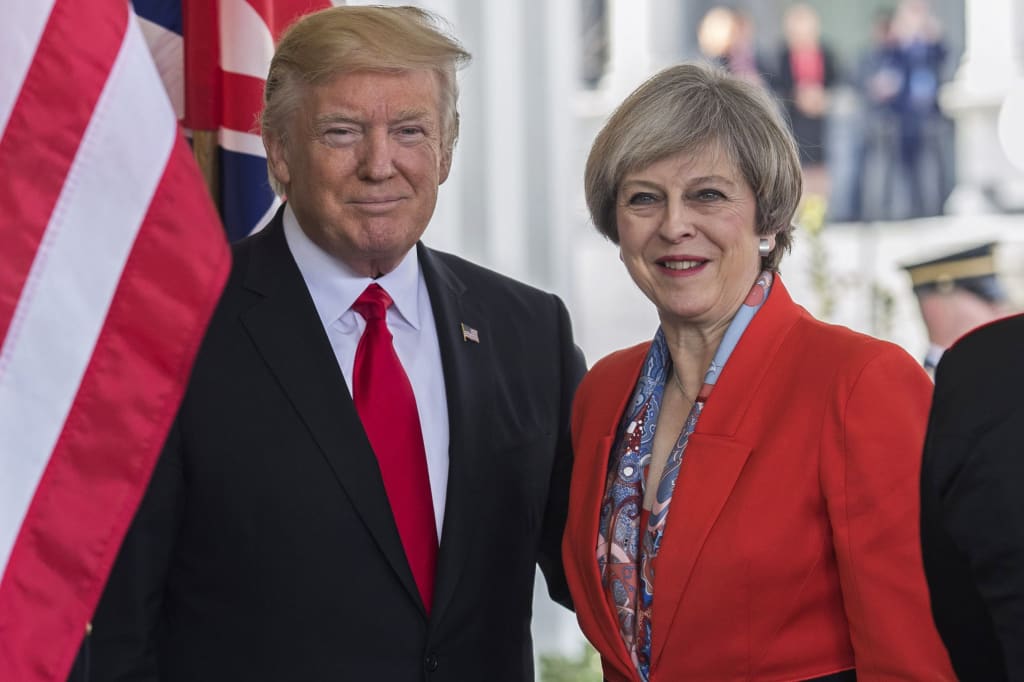Trump, Brexit and the Politics of Isolationism
Can today be found in the past?

This year has been a tumultuous one for British history, defining the final breakaway of the United Kingdom from its somewhat rocky marriage with the European Union. Winston Churchill’s idea of a United States of Europe seems more impossible today than even when it was first proposed.
Britain never was an enthusiastic supporter of the whole European idea, enjoying a special status even before Cameron got a deal brokered as a last resort to save a sinking ship. Unfortunately, what Brexit represents is far more sinister than a simple disunion between Britain and Europe.
The pundits, political commentators, and analysts were all proven wrong as hate speech, fear-mongering and an overriding nostalgia of days gone by overrode common sense and logic. The pound fell by 10 percent as the uncertainty of Britain’s economic future became a reality.
However, does the British divorce represent a rise of a political idea that has been tried before in the United States? It certainly seems so. Isolationism, a political idea first started in the 1920s, is defined as the idea of avoiding foreign agreements of trade, commitments and focusing solely on oneself while avoiding any alliances or foreign conflicts.
Basically, the United States, post-WWI, decided to cut off ties in the alliances and politics in Europe, deciding to stay as an observer only. Much of what Brexit campaigners asked for resonates with that policy, stronger borders and controls, a restriction of immigration, no more interference from Brussels on internal policy, no excessive payments and bailing out of failed European states like Greece, etc.
While how much of those grievances were, in fact, true or not is a matter of debate, the British idea of cutting off European entanglements and agreements is similar to what America did in those days. And much like America, it will be a failed policy.
The loss of European markets alone is enough to shake the ship when it comes to economic stability. Each country enjoys, in the EU, a special status when it comes to the export of goods and their transport with the EU, not to mention all the free trade benefits.
Without the EU, Britain has to negotiate special trade agreements with every country it has a large market share of. Not to mention the new visa policies, security arrangements, status of NATO and other issues bound to come up in the next few years.
America faces a similar return with the rise of Donald Trump. Trump promises his supporters a return to the days when America was great. “We’ll win so much you’ll get tired of winning,” he says to the white middle-working-class that throngs to his meetings.
But his policy is also isolationism. The building of a strong wall with Mexico, the non-interference with dictators in the Middle East, banning all Muslim entry within the United States, going head to head with the Chinese, etc, etc—all suggest an America that cares only about itself and is ready to let the world do as it pleases.
Trump promises to antagonise traditional allies such as Pakistan, make new enemies and solve our own problems whilst withdrawing all the aid we give because we need to put that money into the mainland. The problem? America’s interests are not just limited to the domestic sphere. Terrorism and trade are two major concerns that make our alliances and our “entanglements” necessary.
We cannot go back to the way things were because simply the world is a far more dangerous and far more connected place than it was in the era of jazz and the Roaring Twenties. Our allies in Europe have become even more imperative in the era of Russian resurgence and our allies in the Middle East for the ISIS threat. To leave these major issues is to define a presidency wrought with more dangers than when we started.
In the 1920s, when plane travel was still limited and telecommunication a fledgling science, it may have been possible to focus solely internally and not to be a part of alliances and global blocs.
Even then, the United States had to step in for the greater good against the threat of fascism when the need arose(not to mention the secret help FDR did for the British).
While it may be nice and convenient to reminisce about the time when countries could look inwards and focus solely on themselves, we are no North Korea nor are we Cuba. The necessity of being part of the global whole outweighs the problems that may arise from being entangled.
Ibi victoria, ubi concordia.
About the Creator
Abdullah Masood
Hi I'm a young guy looking to write on stuff I find interesting and fun so hello and enjoy!






Comments
There are no comments for this story
Be the first to respond and start the conversation.